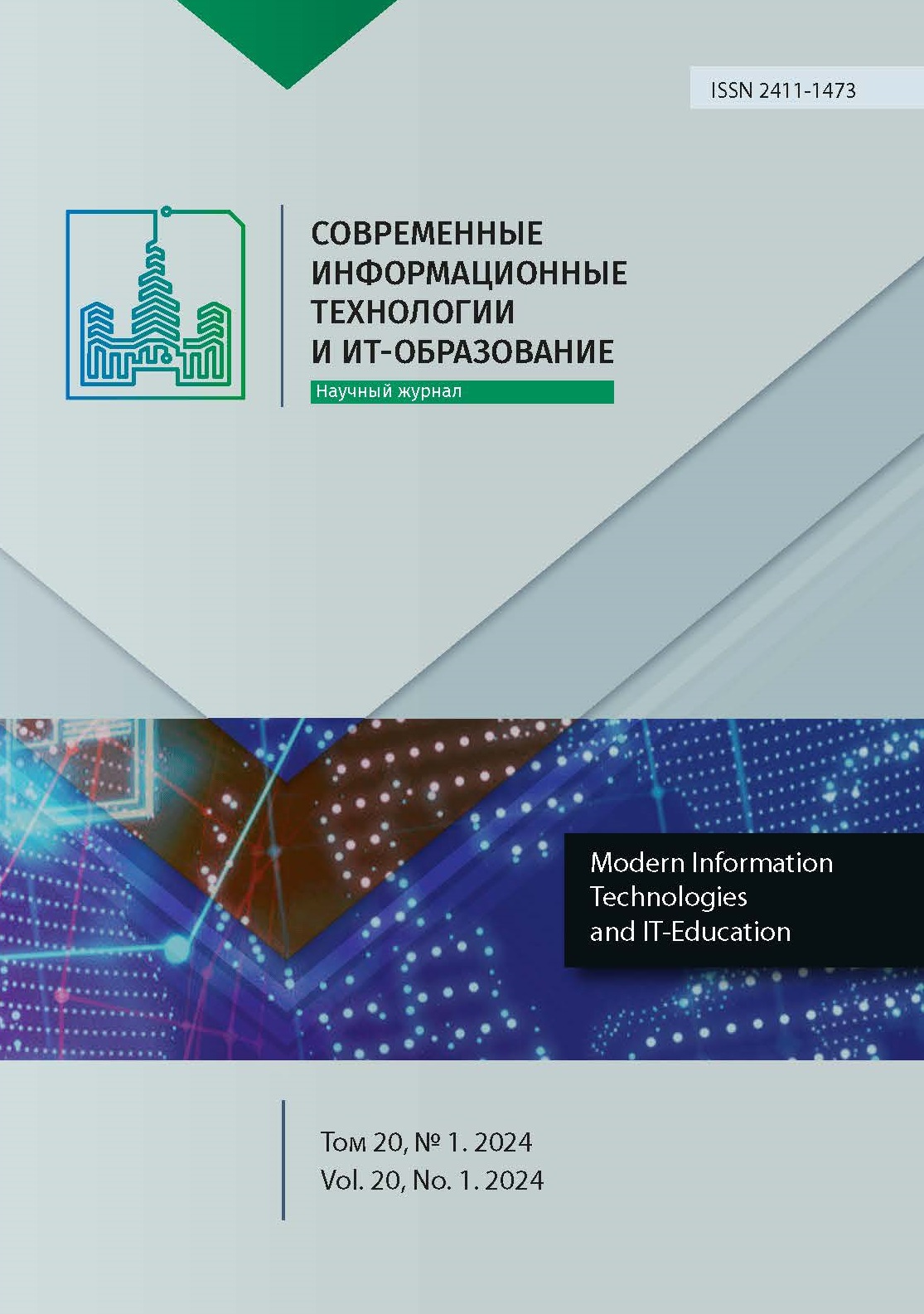Система ведения электронных журналов
Аннотация
Современные научные исследования, проводящиеся на сложных технических экспериментальных установках, зачастую требуют использования вспомогательных информационно-вычислительных систем для эффективного решения исследовательских задач. Одним из таких инструментов являются журналы событий и действий персонала. Помимо научных исследований практика ведения журналов широко распространена во многих других отраслях и сферах деятельности и является неотъемлемой частью хода эксплуатации большинства современных сложных технических установок. В том числе такие журналы ведутся и в Объединенном институте ядерных исследований (ОИЯИ). В данной статье рассматривается новая система ведения электронных журналов, разрабатываемая в Лаборатории информационных технологий им. М.Г. Мещерякова ОИЯИ для ускорительного комплекса Лаборатории физики высоких энергий ОИЯИ. Разрабатываемая система реализована в виде веб-приложения с использованием классического стека технологий LAMP (Linux, Apache, MySQL, PHP) и основана на системе управления содержимым (Content Management System, CMS) Wordpress. Использование CMS Wordpress в качестве основы системы делает ее более гибкой и расширяемой за счет большого количества доступных плагинов. В работе рассматривается основные функциональные возможности представленной системы, отличающие ее от других систем подобного класса, кратко описывается ее структура и использованные технологии. Представленная в работе система является свободно распространяемой системой с открытым исходным кодом, что делает возможным ее применение и в других проектах различной направленности.
Литература
2. Achuthan R., Grover K., MacFie J. A critical evaluation of the electronic surgical logbook. BMC medical education. 2006;6(1):1-5. https://doi.org/10.1186/1472-6920-6-15
3. Tamblyn R., et al. The Effects of Introducing a Mobile App–Based Procedural Logbook on Trainee Compliance to a Central Venous Catheter Insertion Accreditation Program: Before-and-After Study. JMIR human factors. 2022;9(1):e35199. https://doi.org/10.2196/35199
4. Kavelaars A.T., et al. Electronic logbook for space system integration & test operations. IEEE Transactions on Aerospace and Electronic Systems. 2009;45(1):167-178. https://doi.org/10.1109/TAES.2009.4805271
5. Hintzen N.T., et al. VMStools: open-source software for the processing, analysis and visualisation of fisheries logbook and VMS data. Fisheries Research. 2012;115:31-43. https://doi.org/10.1016/j.fishres.2011.11.007
6. Ericsson E. Digital logbook for producing real-time longitudinal data. INTED2022 Proceedings. IATED, 2022. p. 7747-7756. https://doi.org/10.21125/inted.2022.1961
7. Viseskul N., et al. Developing an electronic logbook to monitor progress for international doctoral students in Thailand: a pilot study. Walailak Journal of Science and Technology (WJST). 2019;16(1):47-54. https://doi.org/10.48048/wjst.2019.3749
8. Rachman F., Cahyadi A., Afriyanto R. Development of The E-Personal Safety Logbook (e-PSLB) Optimization Registration Process of Personnel Onboard FSRU. IPTEK Journal of Proceedings Series. 2020;(4):15-18. https://doi.org/10.12962/j23546026.y2020i4.7939
9. Ayre M., et al. Ships’ logbooks from the Arctic in the pre‐instrumental period. Geoscience Data Journal. 2015;2(2):53-62. https://doi.org/10.1002/gdj3.27
10. Balashov N.A., Balashova M.V., Knigin S.R., Kutovskiy N.A. Using ELK Stack for Event Log Acquisition and Analysis. Modern Information Technologies and IT-Education. 2021;17(1):61-68. (In Russ., abstract in Eng.) https://doi.org/10.25559/SITI-TO.17.202101.731
11. Balashov N.A., Baranov A.V., Kutovskiy N.A., Makhalkin A.N., Mazhitova Ye.M., Pelevanyuk I.S., Semenov R.N. Present Status and Main Directions of the JINR Cloud Development. CEUR Workshop Proceedings. 2019;2507:185-189. Available at: http://ceur-ws.org/Vol-2507/185-189-paper-32.pdf (accessed 15.12.2023).
12. Baranov A.V., et al. JINR cloud infrastructure evolution. Physics of Particles and Nuclei Letters. 2016;13:672-675. https://doi.org/10.1134/S1547477116050071
13. Korenkov V.V., et al. JINR cloud infrastructure. Procedia Computer Science. 2015;66:574-583. https://doi.org/10.1016/j.procs.2015.11.065
14. Alexandrov E.I., et al. Research of acceleration calculations in solving scientific problems on the heterogeneous cluster HybriLIT. Discrete and Continuous Models and Applied Computational Science. 2015;(4):30-37. Available at: https://journals.rudn.ru/miph/article/view/8218 (accessed 15.12.2023).
15. Trubnikov G., et al. NICA heavy-ion collider at JINR (Dubna). Status of accelerator complex and first physics at NICA. Journal of Physics: Conference Series. 2023;2586(1):012013. https://doi.org/10.1088/1742-6596/2586/1/012013
16. Heron M., Hanson V.L., Ricketts I. Open source and accessibility: advantages and limitations. Journal of interaction Science. 2013;1(1):1-10. https://doi.org/10.1186/2194-0827-1-2
17. Prokakis E. Free and Open-Source Software: Freedom, Transparency and Efficiency in the Digitalization Era. Journal of Politics and Ethics in New Technologies and AI. 2022;1(1):e31230-e31230. https://doi.org/10.12681/jpentai.31230
18. Wang L., et al. Compact electronic logbook system. In: 17th International Conference on Accelerator and Large Experimental Physics Control Systems (ICALEPCS2019). JACoW Publishing, Geneva, Switzerland; 2019. p. 611-613. https://doi.org/10.18429/JACoW-ICALEPCS2019-MOPHA158
19. Chebotov A.I., et al. Electronic Logbook platform for NICA experiment. AIP Conference Proceedings. 2021;2377(1):040003. https://doi.org/10.1063/5.0063399
20. Xiaohai W., Yang Z., Chao J. Design of Electronic Logbook Based on Finite State Machine. In: 2023 IEEE 3rd International Conference on Electronic Technology, Communication and Information (ICETCI). IEEE Press; 2023. p. 1794-1797. https://doi.org/10.1109/ICETCI57876.2023.10176477
21. Altini V., et al. The ALICE electronic logbook. Journal of Physics: Conference Series. 2010;219(2):022027. https://doi.org/10.1088/1742-6596/219/2/022027
22. Gysin S., et al. Electronic collaboration logbook. Journal of Physics: Conference Series. 2012;396(6):062014. https://doi.org/10.1088/1742-6596/396/6/062014
23. Roderick C., et al. Accelerator fault tracking at CERN. In: Proc. ICALEPCS’17. JACoW, Geneva, Switzerland; 2017. p. 397-400. https://doi.org/10.18429/JACoW-ICALEPCS2017-TUPHA013
24. Corso-Radu A., Avolio G. ELisA: the ATLAS logbook facility extensions. Journal of Physics: Conference Series. 2020;1525(1):012029. https://doi.org/10.1088/1742-6596/1525/1/012029
25. Roderick C., Burdzanowski L., Kruk G. The CERN Accelerator Logging Service- 10 Years in Operation: A Look at the Past, Present and Future. In: Proceedings of ICALEPCS2013 (TUPPC028). San Francisco, CA, USA; 2013. p. 612-614. Available at: https://accelconf.web.cern.ch/ICALEPCS2013/papers/tuppc028.pdf (accessed 15.12.2023).
26. Mosthaf J., et al. Using Wordpress as a Simple and Reliable Electronic logbook for the Heidelberg Ion Therapy Center (HIT). In: Proceedings of ICALEPCS2009. Kobe, Japan; 2009. p. 892-894. Available at: https://accelconf.web.cern.ch/icalepcs2009/papers/thp111.pdf (accessed 15.12.2023).

Это произведение доступно по лицензии Creative Commons «Attribution» («Атрибуция») 4.0 Всемирная.
Редакционная политика журнала основывается на традиционных этических принципах российской научной периодики и строится с учетом этических норм работы редакторов и издателей, закрепленных в Кодексе поведения и руководящих принципах наилучшей практики для редактора журнала (Code of Conduct and Best Practice Guidelines for Journal Editors) и Кодексе поведения для издателя журнала (Code of Conduct for Journal Publishers), разработанных Комитетом по публикационной этике - Committee on Publication Ethics (COPE). В процессе издательской деятельности редколлегия журнала руководствуется международными правилами охраны авторского права, нормами действующего законодательства РФ, международными издательскими стандартами и обязательной ссылке на первоисточник.
Журнал позволяет авторам сохранять авторское право без ограничений. Журнал позволяет авторам сохранить права на публикацию без ограничений.
Издательская политика в области авторского права и архивирования определяются «зеленым цветом» в базе данных SHERPA/RoMEO.
Все статьи распространяются на условиях лицензии Creative Commons «Attribution» («Атрибуция») 4.0 Всемирная, которая позволяет другим использовать, распространять, дополнять эту работу с обязательной ссылкой на оригинальную работу и публикацию в этом журналe.













